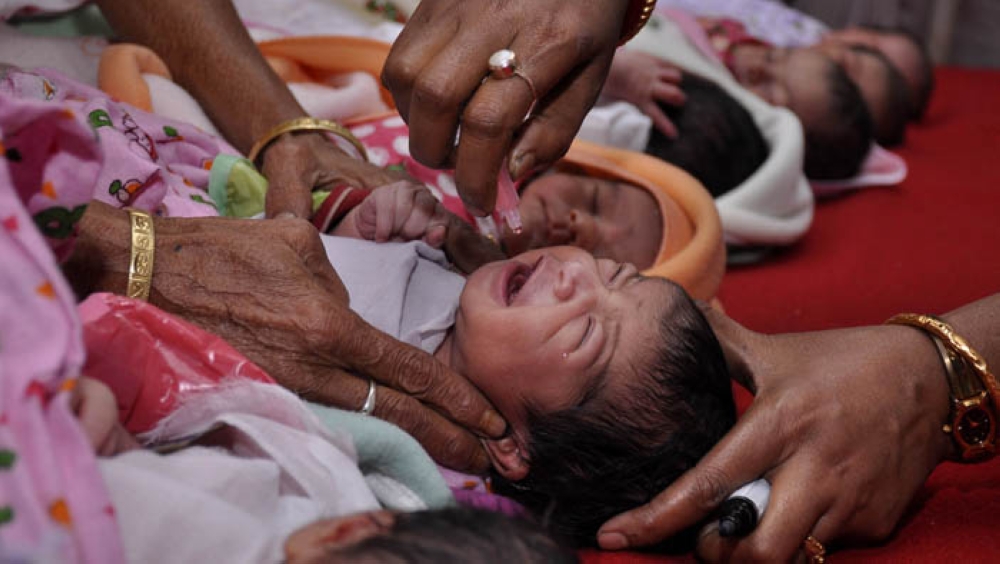
Washington: Measles cases surged 300 percent during the first three months of 2019 compared to the same period in 2018, the UN has said.
The announcement comes as the World Health Organization (WHO) warned that all regions of the world are experiencing sustained increases in measles cases.
“Preliminary global data shows that reported cases rose by 300 percent in the first three months of 2019, compared to the same period in 2018. This follows consecutive increases over the past two years,” WHO said in a statement.
Meanwhile, the heads of WHO and UNICEF declared the world was now “in the middle of a global measles crisis.”
“Cases have soared across the world, including in places where measles had previously been eliminated, like the US”, asserted Henrietta Fore, Executive Director of UNICEF and Tedros Adhanom Ghebreyesus, Director-General of WHO.
According to the UN, measles can be prevented with two doses of safe and effective vaccine. The UN agency heads, however, called the current rate of infection alarming, stating, “by the time you finish reading this, we estimate that at least 40 people – most of them children – will be infected by this fast-moving, life-threatening disease”.
Countries such as the Democratic Republic of the Congo (DRC), Ethiopia, Georgia, Kazakhstan, Kyrgyzstan, Madagascar, Myanmar, Philippines, Sudan, Thailand and Ukraine are currently undergoing outbreaks according to the UN. The disease is also spreading fast among those who resist vaccination even in countries with high overall vaccination rates such as the US, Israel, Thailand and Tunisia the UN has noted.
“We're worried not only because measles can be so severe, it still causes over 100,000 deaths every year, but also because it is extremely contagious,” said the agency chiefs.
They explained that “around the world, millions of children are still missing out on lifesaving vaccines, leaving them and their communities vulnerable to disease and deadly outbreaks”.
The two senior officials also highlighted that uncertainty over vaccines is often fueled by confusing, contradictory information spread online and on digital channels.
According to WHO, global coverage with the first dose of measles vaccine has stalled at 85 percent, short of the 95 percent needed to prevent outbreaks. Second dose coverage, while increasing, stands at 67 percent. This leaves many individuals and communities at risk.
“It is a collective responsibility to support parents and build a more positive environment for vaccination, on and offline”, the UNICEF and WHO chiefs added.
Stressing the need for countries to maintain long-term commitments to fighting the spread of the disease, Fore and Ghebreyesus stated, “It will take long-term efforts, political commitment and continuous investment, in vaccine access, in service quality and in trust, to ensure we are, and remain, protected together.”